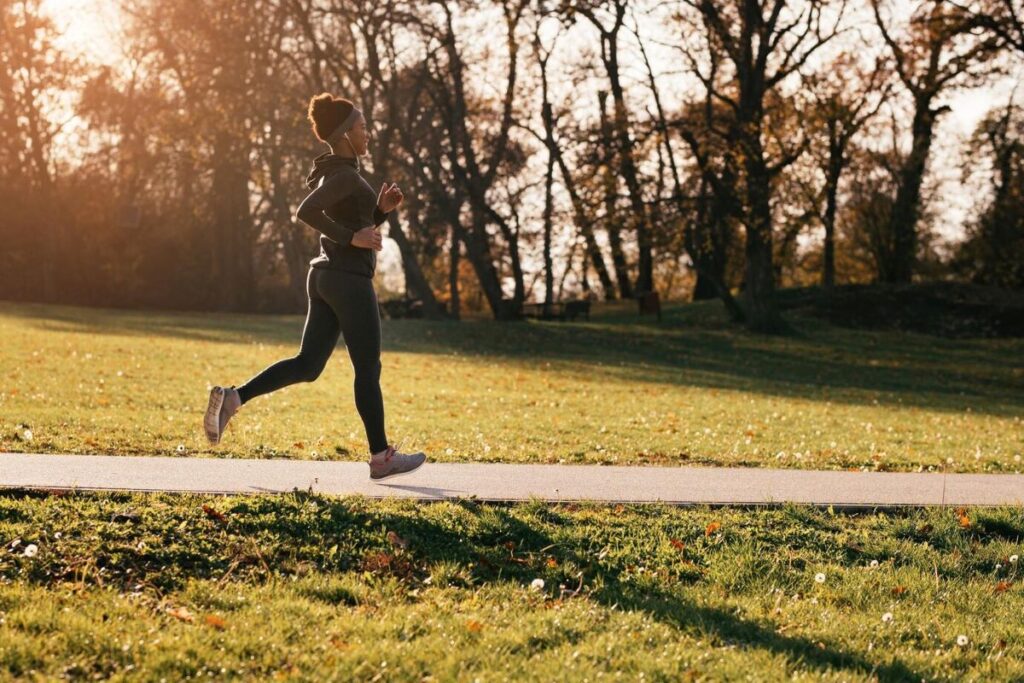When we sleep at night, our body virtually shuts down and relaxes. Granted, movement is not our first priority when we wake up. The body finds it difficult to start up and reenergize, yet according to research by the Mayo Clinic, a morning walk can do wonders for our bodies and overall health. A regular brisk walk, especially in the morning, has several benefits; consider some.
Improves your Mood
A morning walk can immediately boost your mood. For starters, when you walk outdoors, you are exposed to sunshine and fresh air. A mild exposure to the sun is an excellent source of vitamin D which helps you feel awake and refreshed and gets your blood pumping.
Exploring your neighbourhood and seeing what’s going on in the morning is a good head-start for your day. According to WEBMD, walking dramatically improves your mood by increasing blood circulation to the brain and body. Walking also has a positive effect on the central nervous system; it calms your nerves, making you feel less stressed.
Improves Cardiovascular Health
According to the Heart Foundation, walking for an average of 30 minutes a day can lower the risk of heart disease and stroke by 35 per cent. When you wake up in the morning, your body’s heart rate and blood pressure gradually begin to increase. Increased physical activity will increase your heart rate and strengthen your heart’s muscles and blood circulation throughout your body.
Walking also increases your lungs’ ability to take in more oxygen, resulting in lower blood pressure. Walking also reduces body fat and improves overall cholesterol and blood sugar levels.
Strengthens your Muscles
Walking helps strengthen the muscles in your legs and bones. While walking, you can move several different muscles, including the quadriceps and hamstrings, the calf muscles, and the hip adductors.
Walking at a moderate to a brisk pace can tone more than just your legs. It can also help you get a flatter stomach. To achieve this, try focusing on your target muscles, tightening your glutes, and gently drawing in your waist while walking.
Helps you lose Weight
Compared to other forms of exercise, like going to the gym, walking is not typically viewed as an effective way to lose weight. Yet research by the Mayo Clinic shows that walking at a moderate pace for 30 minutes can help you burn up to 150 calories.
Regularly walking in the morning can help you meet your weight loss goals along with a healthy diet and strength exercises. A Harvard medical school study found that walking counteracts the effects of weight-promoting genes for people who walk briskly for at least one hour a day.
Contributes to Better Sleep
Walking regularly in the morning may help you sleep better at night. According to a New York Times article taking more steps during the day may be related to better sleep at night. A study conducted by ScienceDirect tested the relationship between physical activity and sleep. The research recruited 59 individuals, mostly middle-aged men and women. The volunteers were provided with an activity monitor with suggestions for fitting in more walking time during the day.
The volunteers wore the devices for a month, tracking the number of steps they took daily. They were then asked to rate their sleep quality. The research found that the more someone was in motion during the month, the better they rated their overall sleep at night.
Boosts the Immune System
Walking strengthens your immune system; walking for 30 minutes daily can make a remarkable difference in how your body reacts to viruses. A Harvard medical School survey found that walking can protect you during the cold and flu season. The study surveyed 1,000 men and women; those who walked for 20 minutes a day five times a week had 43 per cent fewer sick days than those who exercised once a week or less. There was a direct correlation between exercise and the body’s reaction to colds.
Reduce your Alzheimer’s Risk
Doctors at the Mayo Clinic reiterated the benefits of physical activity and exercise, which appeared to benefit the brain greatly. According to the Mayo Clinic, people who are physically active are less likely to experience a decline in their mental functions and have a lower risk of developing Alzheimer’s disease and dementia. A 2020 Alzheimer’s review research conducted in a prospective study of over eight years found out that women who walked more had less cognitive decline during the entire study period.
Is a Brisk Winter Walk Useful?
When the winter season arrives, we usually find ourselves confined indoors. Winter causes us to move less; even a small amount of time spent outside can profoundly affect the body. According to research by the National Institutes of Health (NIH) walking can help you beat the winter blues and remarkably lift your mood. Additional research by the NIH has shown that exposure to low temperatures can shift the body fat composition by activating the production of brown fat, a healthy type of fat that burns surplus calories.
Scientific research from NIH links exercise and walking in frosty conditions to greater endurance. Research shows that a bit of discomfort is good for the body. Getting out of your comfort zone by taking a brisk walk in the cold bolsters your mental fitness. The study shows that navigating unpredictable terrain and surroundings by watching out for puddles and icy roads coupled with the cold weather conditions essentially acts as a workout for your brain.
A brisk winter stroll is the antidote to the lethargy that sets in during the cold months. Besides burning calories and maintaining muscle mass, a winter walk can improve your mood and increase dopamine production. Low dopamine levels are linked to Parkinson’s disease, restless legs syndrome, and depression. When the body produces less dopamine, you are more likely to feel tired, moody, and unmotivated.
David Messiha | Staff Writer










